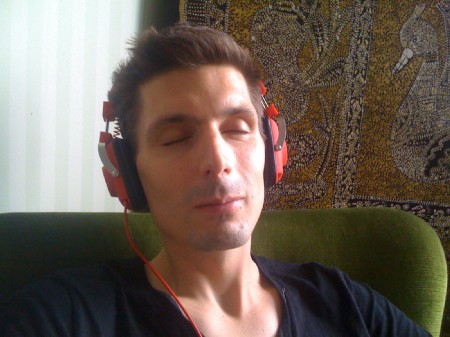Hello, new reader
16 april 2013 | In academia blogg-launch Happiness research Hedonism media Psychology Self-indulgence | Comments?Hello! If you’ve just found your way here, odds are that you did so because of this article http://www.dn.se/insidan/insidan-hem/for-att-lyckas-med-lyckan-far-man-inte-vara-for-krasen
Feel free to look around. The last two years of posts deal almost exclusively with hate crime. If you want something more substantial on that topic, you may start off with this video
And maybe take a look at this rather hefty text, co-authored with Christian Munthe:
http://www.academia.edu/2550264/The_Philosophy_of_Hate_Crime_Anthology_Part_I_Introduction_to_the_Philosophy_of_Hate_Crime
If you are more interested in my work on hedonism, here’s the full text of my dissertation ”Hedonism as the Explanation of Value”:
http://lup.lub.lu.se/luur/download?func=downloadFile&recordOId=1455027&fileOId=1466315
Enjoy!
Sentimentalism and Sports
16 maj 2011 | In Emotion theory Ethics Hedonism Moral philosophy Moral Psychology Psychology Self-indulgence TV | Comments?
I used to care about team sports. Mostly on a national team level (local teams are too much work. I did a season as part of a supporter orchestra, however, but mostly for social reasons). I used to care how things went, and my mood would fluctuate accordingly. Opportunistically, I cared most about table-tennis, hockey and handball: sports where my national team tended to do rather well. But then one day I found myself watching a game of handball, a final I believe, and the team were doing poorly and I was very upset. Clear physical symptoms. And then I took a step back thinking ”Really? This is important enough to be upset about?”. I have never taken sports seriously since. I’ve watched it, enjoyed it, cared about it with the sort of interest intellectuals invented around the 1998 World Cup in France, but never again taken it seriously.
Now to make a ridiculously big deal out of this. It doesn’t matter weather ”your” team wins or loses, in any ”real” sense of ”matters” . It matters only when you care about it. Things matter in the game. Scoring a goal counts, things are instrumentally good or bad. There are local norms. Some of them purely conventional, arbitrary, others invented, almost discovered, to make the game more appealing or make it flow better. But it’s not important that you care about the game. Beginning with a simple case like sports (first, debunk the importance of your team winning – easy, just look at the case for caring about the other team and realize it is usually just as good. Second, debunk the importance of the values inherent to the game altogether) we can generalize to other values. Aesthetic values, etiquette. Maybe even morals. This, of course, is Nietzsche (who I had been reading at the time).
This is how a sceptic argument get started: if we can debunk the importance of this, why not everything? If the emotional impact of caring about something is based on pure conventions with no independent justification – why care about anything? Is it all arbitrary? This, of course, is existentialism (and yes, I had been reading those people at the time, to).
There are two good replies to this challenge.
First: I stopped caring about sports by questioning it’s meaning, but that’s not how the process got started. Rather, it was when caring stopped being useful. Meaning and, I would argue, value, is often generated by caring about things that has no intrinsic, independent value. This is how sentimental value comes to be. It’s very common that positive emotions generated in this way, say by your team winning, becomes tied to negative emotions generated by it’s losing. Some people manage to have the one without the other, but they are often accused of not really caring. You should care about things that doesn’t really matter, because that’s the way to generate things that do matter – positive emotions tied to changing, attention-grabbing activities. In the sports case, it was the realization that it wasn’t working: too much negative emotion, not enough positive. This is when you should kick the habit.
Second: When I noticed that this game did not truly matter, it was a contrast effect. It did not matter as opposed to other things that did. This is a quite general reply to one sceptic argument: when you realize a mistake, you do so because it doesn’t measure up to the truth. You now know the truth (even if it is just that the earlier belief was false). It doesn’t mean that everything you believe is false. Some beliefs, and some values, pass the test. When taking a similar step back from other activities, they still seem to matter.
It’s a good thing to challenge your values now and then, if only to weed some dysfunctional ones out, and reaffirm your commitment to those that truly matters.
Bonus: This, I think, is the best possible metaphor for narrowly clearing a deadline
Hedonic aesthetics, short version
21 januari 2011 | In academia Happiness research Hedonism Self-indulgence | Comments?Sometimes I get the awful feeling that I’m the only one left anywhere who finds any fun in life
– Aunt Augusta in Graham Greene’s novel Travels with my aunt

The quotation above is from one of my favorite novels, one about which I could write volumes (and probably would have, if another post doc suggestion of mine would have gone through. No bitterness, though. But seriously: let’s put the ”fun” back in ”funding”, what?). It is also how I like to begin certain lectures, as a response to the alleged decline of hedonism. Sometimes, in moral, aesthetic, social and whatever theory, you do get the feeling that the fun is missing, nearly banished, dismissed as to shallow, perhaps. This is a mistake, I believe. Just as in some context, it is advised that you ”follow the money” to find the culprit, when it comes to matters of value, you’re well advised to follow the pleasure.
Let’s zoom in on aesthetics. It seems quite clear that how good a piece of music or literature is, is not just a matter of what piece of music causes the greatest amount of pleasure in the greatest amount of people. If it was true ”the Da Vinci Code” would be ranked unreasonably high and Billie Holidays ”Gloomy Monday” unreasonably low. Some works of art, we say, are good not in spite of the negative emotion the stir, but because of them.
Most people understand that the questions ”What is good music” and ”What music do you like” are not the same question. The sort of music you’ll put on when submerging in a bath is not always the same sort of music you would put in a pod and send to outer space to impress alien civilizations. (Btw, you should probably also fight the temptation to send whatever is normally used in science fiction soundtracks nowadays).
But, and here comes the point with hedonic aesthetics: Even if we agree that ”What is good” and ”What do I like” are different questions, how different are they? Are the closely related, perhaps? How does what I like relate to my value judgments, and vice versa? Is there an explanatory relation, some mode of inference? Do we use our likings as evidence for aesthetic value? Perhaps we reserve the use of value to things we like that we are proud of liking, or for things we like and believe that other under suitable circumstances would like to? Perhaps it is not what they would immediately like, but what they would like eventually, on a second, third, fourth re-reading. So that value judgments are really judgments about what is worthwhile.
The motivational force of value judgments would thus stem from their hedonic, liking, component. Their ”normative” force, as it were, their recommending function, would stem from being universalized by weeding away irrelevant and temporary likings. Of course, it is open to stipulate any subgroup of values, due to which group you intend it to hold for, and what grounds are allowed as relevant.
The work cut out for hedonic aesthetics, and for hedonistic theory in general, is to demonstrate how we go from immediate, instinctive likings, via affective, associationist learning and conditioning, to the full-fledged domain of values as we know them from ordinary discourse.
Surely, there’s some fun to be found in that?
On work and idleness
9 oktober 2010 | In Books Happiness research Hedonism Moral Psychology politics Psychology Self-indulgence TV | 1 Comment
I’m coming to you from (blogging is live, no?) a coffee shop in Gothenburg, where I’m spending this morning preparing next weeks lectures on applied ethics. (First out is animal ethics, which I have to weave together with the ethics of abortion, since we didn’t manage to conclude that subject on friday. Luckily, this is not a hard thing to do.)
It’s a good morning. It’s a very good morning. In fact, I’ve done more work in the past two hours than I did all day yesterday. Which is good for present me, but also a bit annoying for that curmudgeon I was most of yesterday.
What it means is that if I knew how to get to this point of effectiveness, even if it took some time (in fact, if it took less than six hours), it would have been rational to spend the main part of the day doing that, and just work for two hours, rather than working at a much slower rate for eight. It would be rational for another reason to: I’ve found that the way to get to this point is to do things that are nice. Talking to friends and family, reading fiction, taking walks, listening to music or watching television. Good television, I hasten to qualify, because it seems the assigned function of being ”relaxing” is actually not truly attributable to all, or even the majority of, TV-watching. We just think it is, because it make us tired, and then we come to believe that we really needed the relaxation in the first place.
Ideally, of course, I would spend my free time doing the things that make me work like this for the full eight (or so) work hours. But things are not, entirely, ideal. Knowing that, its important to leave your work place occasionally and be idle. Do what you feel like doing, if your conscience and work-ethic will let you. Some companies, famously Google, seem to have grasped this idea and achieve great results for that reason. Of course, this is only true if your work is such that how effectively you can do it depends crucially on your mood and creativity.
Bertrand Russell’s wonderful little essay In praise of idleness is about precisely this. People should have more time to pursue and develop their interests not only because it make them happier – and happiness is, after all, what we want them to achieve – but also because they work better if they’re allowed to do that sort of thing. The worry that the working class would be up to no good if given free time to conspire was based on the fact that as things were, they took to drink, say, or fighting when off work. But in so far that’s true, it’s because they were unhappy, and hadn’t had the time to develop worthwhile pastimes.
Stress is not primarily a consequence of having a lot to do, but a of getting nothing done, or getting less done than you imagine that you should (and having a lot to do may cause that, but need not, and should not. Extremely few of your tasks, I think you’ll find, is done better under stress).
I’ll return to those lectures now. Because I actually really like to.
What Modesty Forbids
31 januari 2010 | In Books Hedonism Self-indulgence | Comments?I’m sure every reader has his/her way of working her/his way through a book or paper with the help of a pen, underlining and making notes in the margin. The ”notes in the margin”, for me, has settled on a quite restricted number of expressions. There’s ”qb”, of course, for ”question begging”, there is the exclamation mark (which I hardly ever use otherwise) for remarkable statements, there are shorthands for missing premisses, spurious reasonings. and so on. There is the occasional ”good point”, when something strikes me as being just that. And the ”Exactly”, when someone makes a good point with which I agree. Finally, the ”Exactly. Damn it”, when the point is good, I agree, and it is so essential to my own argument that I curse the fact that someone else got to publish it first. (These things tend to happen when your views are true and interesting.)
This happened to me constantly while reading Leonard D Katz’ absolutely superb dissertation ”Hedonism as metaphysics of mind and value” (and yes, my title is a bit of a hommage). In fact, I might as well have put a sticker with ”Exactly. Damn it” on the cover. (His practically book-length on pleasure in the Stanford Encyclopedia of Philosophy is simply amazing, without doubt the best piece of philosophical writing there is on the subject, and the fact that things still get written about pleasure without reference to either of those two texts is nothing short of a scandal. (Stop it David, you are getting all worked up and excited, and that’s a shame).)
And now it happened again, in the work of Sharon A Hewitt. The most striking resemblance of my view and hers is our claim that goodness and badness are basically phenomenal properties: the experiences of pleasure and displeasure. ”Feeling good” is, in fact precisely that: having that feeling which goodness consists in. I would like to praise her work, because it is really quite brilliant, but it seems to me that modesty forbids it. We have not been in contact while working on our respective dissertations, so either there is a common source (and Katz’ work might very well be it. That, or C.I. Lewis’ ”An analysis of knowledge and valuation”), or we have some sort of snail-telegraph thing going.
Pleasure is very good indeed
7 januari 2010 | In Hedonism Meta-ethics Self-indulgence | Comments?Hardly anyone denies that pleasure is good. ”Because it is pleasant” is an excellent answer to the question ”why do it?”, even if some people find it a slightly to self-indulgent one. But so what? Pleasure is good, but so are a lot of things. Justice is great. Knowledge is just excellent. Excellence to has a lot going for it. And True Friendship and Self-knowledge and Health and Success are all good. At least we talk as if they are, and a good theory of goodness, or of any common sensical concept, should respect the objects that we group under the term that expresses that concept. Right?
If we respect our actual evaluations, then, something like pluralism seems to be right.
We could perhaps think up a concept that would cover the things we usually value, and such a concept would probably chime well with our ordinary language (good luck finding such a concept that cover an uncontroversial set of things, however). But when I say that Pleasure is Good, I say something slightly different from when I say that friendship, knowledge or excellence is good. Pleasure has some more intimate relationship to goodness than any of those things. Pleasure is not only one of the things that we value, it is the basic means by which we value. To experience pleasure is already to pass an evaluative ”judgment” on whatever object that happens to be saliently in our mind at that moment.
I believe this means that pleasure should be given a foundational role in the theory of value. The value that accrues to it is much more fundamental than the ”value” we might want to assign to other objects. The scope of the common sensical concept ”value” has probably evolved to extend beyond its humble origin in hedonic processes, but its origin is still relevant to that concept. Pleasure, I say, is not only good, it is very good indeed.
Bored by Happiness?
29 september 2009 | In Books Happiness research Hedonism | 1 CommentI write occasionally on this blog called ”the Happiness Blog” (in swedish), which is mostly about psychological, behavioral and political strategies to increase happiness. It’s a fairly honourable pursuit, and the research it is based on is fascinating both in its robust results and in the large areas of it that are still very much up for discussion.
Recently, however, I’ve noticed a lot of reactions to this research that is, well, bored by the whole thing. This is not too surprising, the new wave of books that made it a trend culminated, I’d say, in 2005, and it was bound to get old sooner or later. This autumn will see a surge of books on the subject written in swedish, so we might expect even more of these reactions. The stuff is still highly relevant, of course, eternally so, but there is a bit of a PR problem here. We need to move on from the basics, perhaps even construe some disagreements about different happiness-researchers so that the reaction against a certain view on how happiness should be promoted turns into an argument for an alternative view. (People do this in literary criticism All The Time.)
A big problem, (as I’ve noticed in the mixed reception of my own vain attempts for media attention), is that the criticism vastly underestimate the complexity of the happiness researchers claims. While I’m actually quite pleased that books with some scientific credentials is budding in on the self-help market, it also opens up for poorly researched self-help books to dress up as science. While happiness-reserachers, often believe that even poorly reasoned self-help books might do more benefit than harm, its important to keep a certain distance. At least if we want the coverage, and the discussion, to become more nuanced and the full complexity of the research be allowed to surface.
Who likes short shorts?
26 september 2009 | In Hedonism Meta-ethics Naturalism Self-indulgence Uncategorized | 2 CommentsLately, the question ”what is your dissertation about” has become somewhat more frequently asked of me. Forthy-five minutes later, I usually get the impertinent question if I’d mind making the answer a bit shorter. Well, I do mind, but allright. So I end up experimenting with different short-versions, none of which is unqualifiedly true. But then again, to be unqualifiedly true is pretty much to ask of any theory. After all, my argument is that hedonism is true enough. Anyway: I’d thought I’d give it another go, and to give you in less than, say 200 words, the gist of my theory of value. Ready? Here we go:
What’s good? Opinions diverge, so we turn to the more basic question: What do we say when we say that something’s good? What would make that statement true? Theories are wildly at odds with each other. What to do? It seems we are dealing with different uses of the term ’good’, and we must decide how to treat this problem. The first decision is to look for their common origin, so we can say that these uses are variations on a common theme. The other decision is to treat goodness as a natural property.
Whatever value is, it must correspond to what we believe about it. We might be mistaken about it, but cannot be totally wrong. Value should fit with our beliefs about value and be part of the causal explanation of those beliefs. I argue that pleasure fits with many of our value beliefs, especially regarding how value relates to motivation, and it is universally believed to be valuable. Hedonic processes, are also a key part of the causal explanation of our evaluations, and evaluating abilities. This means that the common beliefs that the theory does not make true, it can explain away. Pleasure is value.
How did I do?
Post Doc Posts Document
15 september 2009 | In blogg-launch Hedonism Self-indulgence | 2 CommentsSay you’re interested in the nature of pleasure. Say you’ve harbored hedonistic inclinations all of your life, but haven’t really found a version of that theory that really fits with your empiricist life-style. Say that you find meta-ethics absolutely hilarious and the publishing industry just can’t turn out books on the subject fast enough for you. Quite besides the obvious fact that you and I should be friends, (Facebook friends at least – all the information, none of the guilt for not calling, or caring, really), here is something you might be interested in.
It’s my dissertation, ”Hedonism as the Explanation of Value”, which I (successfully, I might add) defended in Lund, Sweden on Saturday the 12th of september.

